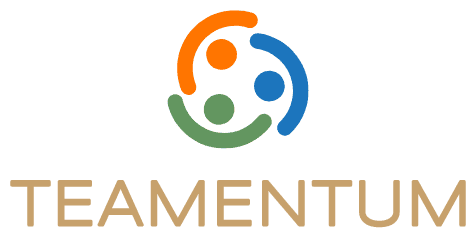Performance reviews are a valuable opportunity for you to gain insights into your work, set goals, and chart a path for professional growth. While these reviews can sometimes feel daunting, understanding how to approach them proactively can turn them into a powerful tool for your career development. This guide provides practical steps to help you prepare for, engage in, and benefit from your performance review.
Prepare in Advance
Preparation is key to making the most out of your performance review. Take the time to reflect on your achievements, challenges, and goals before the meeting.
Steps to Prepare:
– Reflect: Compile data and examples of your achievements, projects, and contributions but also on what was not achieved. This might include successful projects, positive feedback from colleagues, metrics demonstrating your performance, deadlines not met, or client complaints.
– Compare: Check progress against last performance review or feedback. What has been achieved and what is still pending.
– Identify Challenges: Identify any obstacles you’ve faced and consider how you addressed them or what you learned from them.
Questions to Consider:
– What are my most significant accomplishments over the past review period?
– Have I encountered any challenges, and how have I addressed them?
– What skills or knowledge have I gained recently?
Set Personal Goals and Development Plans
Performance reviews are an ideal time to discuss your career aspirations and development plans. Think about where you want to be in the future and how you can align your goals with the company’s objectives.
Steps to Set Goals:
– Identify Career Aspirations: Determine your long-term career goals and how they align with your current role and the company’s direction.
– Set SMART Goals: Define Specific, Measurable, Achievable, Relevant, and Time-bound goals. This makes it easier to track your progress and stay focused.
– Discuss Development Needs: Identify any skills or knowledge you need to acquire and discuss how your manager can support your development.
Examples of Goals:
– “Develop leadership skills by taking on a project management role within the next six months.”
– “Improve presentation skills by attending a training workshop by the end of the quarter.”
Engage Actively in the Review Process
During the performance review, it’s essential to engage actively and participate in a constructive dialogue with your manager.
Tips for Active Engagement:
– Listen Carefully: Pay attention to the feedback provided and ask for clarification if needed. Understanding your manager’s perspective is crucial for your growth.
– Ask Questions: Use the review as an opportunity to seek feedback on specific areas where you want to improve. Ask for examples or suggestions on how to enhance your performance.
– Be Open to Constructive Criticism: Approach feedback with an open mind. Constructive criticism is meant to help you grow and improve. Remember, your manager is invested in your success because it also contributes to their own success and the success of the team.
Key Point:
– Avoid Getting Defensive: It’s natural to feel defensive when receiving feedback but try to stay calm and composed. Your manager’s feedback is intended to support your development, not to criticize you personally. Approach the conversation with a mindset of learning and improvement.
Questions to Ask:
– “Can you provide specific examples of where I can improve?”
– “What are the most critical areas for my development?”
– “How can I better align my work with the team’s objectives?”
Take Ownership of Your Development
Taking ownership of your personal and professional development is crucial. Use the feedback and insights from your review to create an actionable plan for growth.
Steps to Take Ownership:
– Create an Action Plan: Develop a plan based on the feedback and goals discussed. Outline the steps you need to take to achieve your objectives.
– Seek Resources: Identify any resources or training you might need to support your development and discuss these with your manager.
– Track Your Progress: Regularly review your progress toward your goals and make adjustments as needed. Consider scheduling periodic check-ins with your manager to discuss your progress.
Example of an Action Plan:
– Goal: Improve project management skills.
– Action Step 1: Enroll in a project management course by the end of the month.
– Action Step 2: Apply new skills by leading a small project within the next quarter.
– Action Step 3: Schedule monthly meetings with a mentor to discuss progress and challenges.
Follow Up and Stay Engaged
After the performance review, follow up on the action items and maintain an ongoing dialogue with your manager about your progress and any challenges you encounter.
Follow-Up Tips:
– Schedule Follow-Up Meetings: Arrange regular meetings with your manager to review your progress and adjust your development plan if necessary.
– Seek Feedback Continuously: Request ongoing feedback from your manager and colleagues to stay informed about your performance and areas for improvement.
– Celebrate Achievements: Recognize and celebrate your successes and milestones. This will help keep you motivated and focused on your goals.
Performance reviews are a valuable opportunity to gain insights into your work, set clear goals, and chart a path for professional growth. By preparing thoroughly, engaging actively, taking ownership of your development, and following up on your progress, you can make the most out of your performance review and drive your career forward. Embrace the feedback as a tool for growth and remember that your manager’s goal is to support your success, which ultimately contributes to the team’s and the company’s success.
If your company does not have a formal performance review process, taking the initiative to request feedback can be equally valuable for your growth. Don’t wait for scheduled reviews to gain insights into your performance. Reach out to your manager or colleagues for regular feedback and express your interest in discussing your progress and areas for improvement. This proactive approach demonstrates your commitment to professional development and can lead to more meaningful and timely guidance. By initiating these conversations, you not only gain valuable insights but also show your dedication to continuous improvement, which can positively impact your career advancement and contribute to a culture of open communication within your organization.

